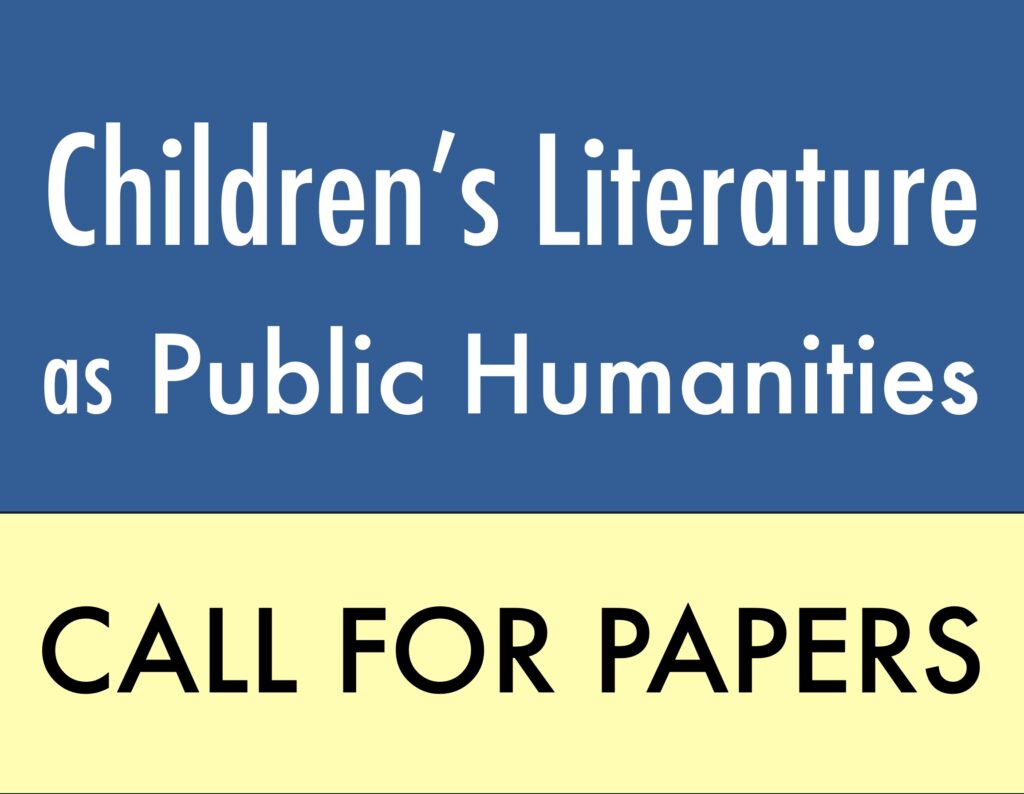Children’s Literature As Public Humanities
CFP for a non-guaranteed session sponsored by the MLA Forum on Children’s and Young Adult Literature. To be held at the 2026 MLA in Toronto, January 8-11, 2026.
This roundtable invites consideration of children’s literature as public humanities. In distilling complex ideas into emotionally resonant stories, books for children and young adults have a unique capacity to educate and inspire the general public — which is one reason why conservative legislators are banning them. Books for young readers can provide Rudine Sims Bishop’s mirrors, windows and doors. And they can help us face many contemporary challenges.
Some questions panelists might consider include but are not limited to the following:
- Banning books for young people are part of a larger attack on public libraries and public education — both of which are fundamental to a healthy democracy. Which children’s and YA literature offer the most powerful defense of the public’s democratic right to access free and accurate information? How might we deploy these stories to defend this right?
- As Robin Bernstein has argued, children’s literature’s entanglement with materiality and action — especially play — makes it “nearly unique among literary genres.” That element of play, she notes, “is simultaneously compliant and unruly.” How might children’s literature’s invitation to play help citizens — adults and children alike — rediscover their own power and confront oppressive ideologies?
- Conservatives target children’s and YA books by and about minoritized communities out of fear that empathy will foster solidarity, that understanding history will show people to alter its course, and that representation of minoritized communities will affirm their humanity — teaching these children that their stories matter. As a public humanity, how might children’s literature push back against these efforts?
- As Marek Oziewicz and Lara Saguisag’s Climate Lit project reminds us, children’s literature plays a key role in educating young people about climate change. Which books are most effective in promoting climate literacy, fostering responsible environmental stewardship, and advocating for climate justice?
- Stories can be more persuasive than facts. As a character in Richard Powers’ The Overstory says, “The best arguments in the world won’t change a person’s mind. The only thing that can do that is a good story.” And, as Angela Davis has observed, “art is able to reach people in a way that didactic conversations often don’t…. Art often allows us to grasp what we cannot yet understand.” Which stories for young people are most adept at seizing art’s power to change minds and “grasp what we cannot yet understand”?
- Books for children often center the imagination. Which books help us see, as Ruha Benjamin argues, that “Imagination is a field of struggle, not an ephemeral afterthought that we have the luxury to dismiss or romanticize”? Which best expose (to quote Benjamin again) “the array of oppressive imaginaries that more casually govern our lives”?
- Walidah Imarisha has said that “Whenever we try to envision a world without war, without violence, without prisons, without capitalism, we are engaging in speculative fiction.” In showing how the speculative can change the real, which works for young readers help them (and us) envision that emancipated future?
Please submit a 300-word abstract and 2-page CV by March 20 to Philip Nel <philnel@ksu.edu>.

